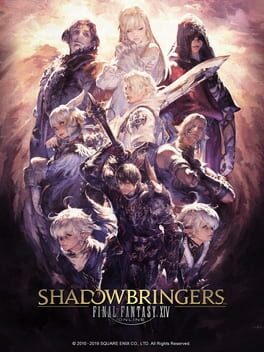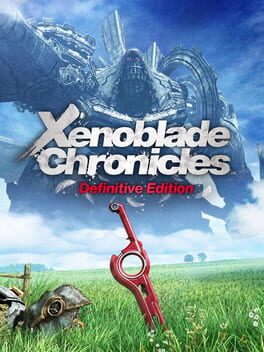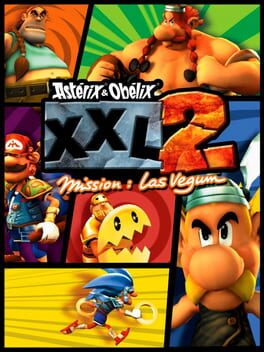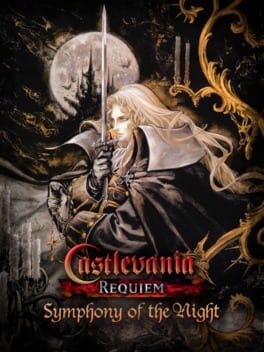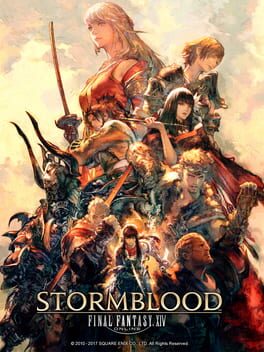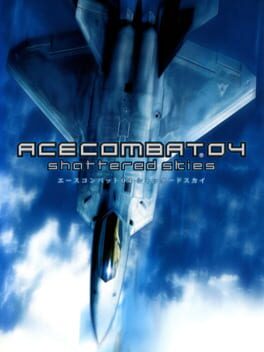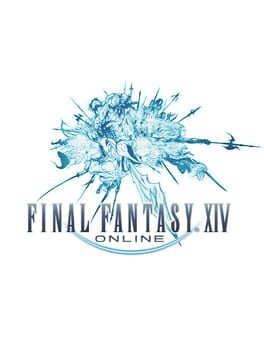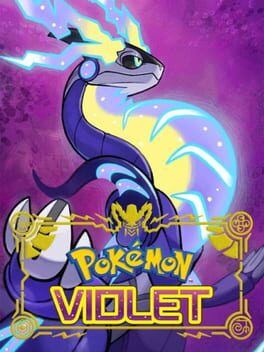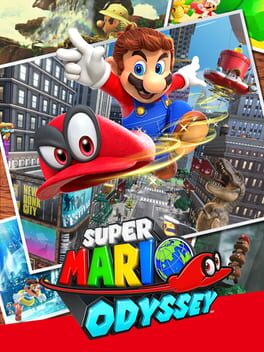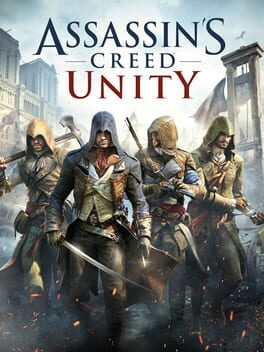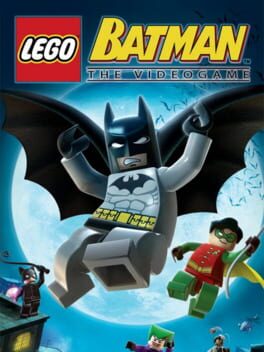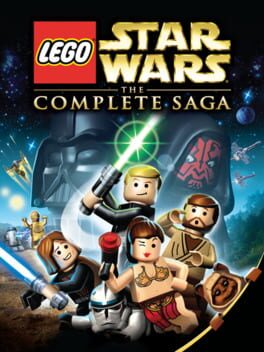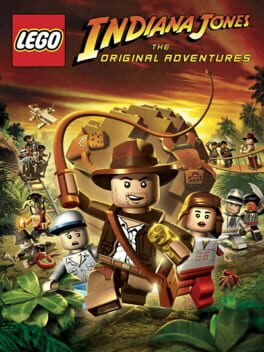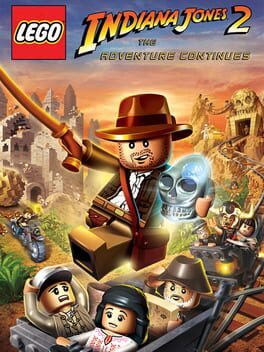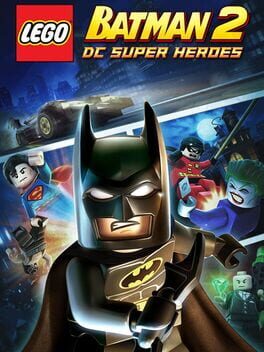Folgin
66 reviews liked by Folgin
Some pacing issues aside, Shadowbringers boasts what's probably this game's best storytelling to date. In Norvrandt, Final Fantasy XIV has an incredible post-apocalypse and what's at least facially an interesting subversion of Final Fantasy XIV's centerpiece conflict between "light" and "dark." A handful of story beats are some of this long-running MMO's best, many of them mulled over the course of the last two expansions only to suddenly deliver at Shadowbringers' heights. A few of Final Fantasy XIV's newer characters – as well as a couple of returning faces – are fun and nuanced additions to a game that often struggles with developing its cast. Even the core cast members here find room to grow into something feeling more akin to actual characters.
That's all on top of the usual trappings that make Final Fantasy XIV so special. Aesthetically, this game remains a delight, though Final Fantasy XIV's cozier notes find a little more contrast in the handful of moments where Shadowbringers openly flirts with horror. The boss fighting and raiding at Final Fantasy XIV's core continue to dazzle, and I've yet to find a better communal experience in online gaming.
I know the folks behind Final Fantasy XIV have disowned interpretations of Shadowbringers as a metaphor, but I can't shake the analogs to environmental collapse, and the bureaucratic failure presented in both Amaurot and Sharlayan's response to their worlds' supposed end. I'm not the first person to point this out, but those connections felt more familiar than I'd like as I began Shadowbringers on the tail end of a mismanaged pandemic, during a summer of intense floods and wildfire smoke, and then finished this expansion amid one of my home state's warmest winter seasons on record.
Finally, I'm nervous as this game heads into Endwalker. Chasing Shadowbringers' Emet-Selch with a nihilistic brat and an obsessed rival seems poised to let down, and even at their most theatrical, the set piece battles wrapping up Shadowbringers haven't quite delivered. I'm hoping a few of the narrative seeds planted in Shadowbringers, however, maybe bloom into something more as Endwalker begins in earnest.
That's all on top of the usual trappings that make Final Fantasy XIV so special. Aesthetically, this game remains a delight, though Final Fantasy XIV's cozier notes find a little more contrast in the handful of moments where Shadowbringers openly flirts with horror. The boss fighting and raiding at Final Fantasy XIV's core continue to dazzle, and I've yet to find a better communal experience in online gaming.
I know the folks behind Final Fantasy XIV have disowned interpretations of Shadowbringers as a metaphor, but I can't shake the analogs to environmental collapse, and the bureaucratic failure presented in both Amaurot and Sharlayan's response to their worlds' supposed end. I'm not the first person to point this out, but those connections felt more familiar than I'd like as I began Shadowbringers on the tail end of a mismanaged pandemic, during a summer of intense floods and wildfire smoke, and then finished this expansion amid one of my home state's warmest winter seasons on record.
Finally, I'm nervous as this game heads into Endwalker. Chasing Shadowbringers' Emet-Selch with a nihilistic brat and an obsessed rival seems poised to let down, and even at their most theatrical, the set piece battles wrapping up Shadowbringers haven't quite delivered. I'm hoping a few of the narrative seeds planted in Shadowbringers, however, maybe bloom into something more as Endwalker begins in earnest.
People championing the first Xenoblade Chronicles maybe undersell just how much capital-V videogame happens over its dozens of hours. The grand scale is admirable, but there are still secret platforming challenges and dungeon mini-bosses breaking up an epic tale that seemingly wants its players more interested in human nature, free will and Xenoblade's cast's thoughts about both.
A secret about me, though, is that I like platforming challenges and dungeon mini-bosses. Slot that into a game that, despite never really maintaining a logical through line, keeps up an emotional through line told over days of game time blending high fantasy and science fiction with found families, actual hippies and a landscape that is, quite literally, two giant fighting robots, and I think you've got something special.
A secret about me, though, is that I like platforming challenges and dungeon mini-bosses. Slot that into a game that, despite never really maintaining a logical through line, keeps up an emotional through line told over days of game time blending high fantasy and science fiction with found families, actual hippies and a landscape that is, quite literally, two giant fighting robots, and I think you've got something special.
I love almost everything about this game. I love how rewarding exploration is. I love how intuitive navigation and progression are. I love how it encourages experimentation in how you interact with the world and your items. I love the aesthetics. I love the music. I have maybe a few minor gripes about the combat, but I'm going to overlook those because of how much I sincerely enjoyed everything else about this game.
In which the Warrior of Light and gang intervene in not one but TWO foreign conflicts and build a state-sponsored mineral extraction business in a vaguely Middle Eastern, war torn nation. That this somehow came out in the middle of the 2010s, with headlines about Iraq and Afghanistan fresh in our collective memory, baffles me.
I never get the impression that Final Fantasy XIV has a good grasp on its politics either in-game or in relation to the real world, but by centering Stormblood on a global conflict, it becomes so much harder to ignore how weak its storytelling is the moment things drift away from wizards and demons, and into councils and war rooms. Especially in a world where we continue to see real wars and real refugee crises, it's hard to stomach Final Fantasy XIV's sloppy facsimile. (There's a line spoken by a character who's usually presented as comic relief about how helping refugees requires a profit motive, and it's gross.)
To Stormblood's credit, things do even out when the game recenters its "light versus dark" conflict that leans more into a typical Final Fantasy tale of crystals and gods and cool anime dudes, and between the additional trials, dungeons, raids, classes and side stories, and a handful of new mechanics, Stormblood adds so much to Final Fantasy XIV as a game. Newer duties, made with more experienced players in mind, build on Final Fantasy XIV's already strong dungeon and raid experience, with Stormblood's post-game offering some of the best encounters in the whole of Final Fantasy XIV. On that front alone, Stormblood serves as maybe the strongest of the first two Final Fantasy XIV expansions, even if it's a step back when it comes to storytelling.
I never get the impression that Final Fantasy XIV has a good grasp on its politics either in-game or in relation to the real world, but by centering Stormblood on a global conflict, it becomes so much harder to ignore how weak its storytelling is the moment things drift away from wizards and demons, and into councils and war rooms. Especially in a world where we continue to see real wars and real refugee crises, it's hard to stomach Final Fantasy XIV's sloppy facsimile. (There's a line spoken by a character who's usually presented as comic relief about how helping refugees requires a profit motive, and it's gross.)
To Stormblood's credit, things do even out when the game recenters its "light versus dark" conflict that leans more into a typical Final Fantasy tale of crystals and gods and cool anime dudes, and between the additional trials, dungeons, raids, classes and side stories, and a handful of new mechanics, Stormblood adds so much to Final Fantasy XIV as a game. Newer duties, made with more experienced players in mind, build on Final Fantasy XIV's already strong dungeon and raid experience, with Stormblood's post-game offering some of the best encounters in the whole of Final Fantasy XIV. On that front alone, Stormblood serves as maybe the strongest of the first two Final Fantasy XIV expansions, even if it's a step back when it comes to storytelling.
As an artifact of the early 2000s, Ace Combat 04 is fascinating. As a game, Shattered Skies sees the Ace Combat formula mature into the melodramatic arcade flier that would define its genre. Essentially an arcade game built around high scores, you're given a bottomless supply of missiles and bullets to race through a variety of environments stuffed with different baddies, chasing points and dopamine rushes from those "HIT" and "DESTROYED" notes flashing on your screen. Occasionally you're given an enemy ace to duel with, forcing you to work a little harder for those points. This is all very basic stuff, but there's an obvious hook in taking an arcade game and giving it an afterburner.
There's also an interesting conversation around history here. Shattered Skies is a clear relic from that first decade after the Cold War, tapping into loose Russian and Western analogs, explicit visual references to the Gulf War, and a specter of decisive, doomsday super weapons looming in the background. I don't think it says anything particularly profound about this period of time, but the context is there and it's not subtle.
I also think it's interesting to think about this series' narrative and Shattered Skies' place within it. We're still some ways away from the science fiction soap opera of more modern Ace Combat games, as well as their more explicit ideological battles about mythmaking, warfare and people's place in both. Instead, we're given a fairly grounded story about citizens of an occupied nation wrestling with a difficult relationship with their occupiers, seen here as pretty sympathetic at at least a surface level. Through this story, Shattered Skies offers us a basic thesis statement that "war is bad," something seeming to conflict with its other, more implicit thesis statement that "fighter jets are cool." It's basically Mobile Suit Gundam with less robots and more Lockheed Martin. I'm mostly comfortable with this contradiction, but I won't say it doesn't give me the occasional reason to pause.
Finally, Ace Combat 04 squeezes in an obligatory trench run mission. Look, I love Star Wars and think the trench run from the first movie is great. It's also maybe better experienced through a movie, because crawling a fighter jet through a narrow chasm with literally nothing else happening isn't exactly the thrilling climax I think the developers hoped for. A mission earlier in the game, when a different super weapon forces you to race through a canyon, fares way better at this, if only because Ace Combat is better experienced when there's room to fly.
There's also an interesting conversation around history here. Shattered Skies is a clear relic from that first decade after the Cold War, tapping into loose Russian and Western analogs, explicit visual references to the Gulf War, and a specter of decisive, doomsday super weapons looming in the background. I don't think it says anything particularly profound about this period of time, but the context is there and it's not subtle.
I also think it's interesting to think about this series' narrative and Shattered Skies' place within it. We're still some ways away from the science fiction soap opera of more modern Ace Combat games, as well as their more explicit ideological battles about mythmaking, warfare and people's place in both. Instead, we're given a fairly grounded story about citizens of an occupied nation wrestling with a difficult relationship with their occupiers, seen here as pretty sympathetic at at least a surface level. Through this story, Shattered Skies offers us a basic thesis statement that "war is bad," something seeming to conflict with its other, more implicit thesis statement that "fighter jets are cool." It's basically Mobile Suit Gundam with less robots and more Lockheed Martin. I'm mostly comfortable with this contradiction, but I won't say it doesn't give me the occasional reason to pause.
Finally, Ace Combat 04 squeezes in an obligatory trench run mission. Look, I love Star Wars and think the trench run from the first movie is great. It's also maybe better experienced through a movie, because crawling a fighter jet through a narrow chasm with literally nothing else happening isn't exactly the thrilling climax I think the developers hoped for. A mission earlier in the game, when a different super weapon forces you to race through a canyon, fares way better at this, if only because Ace Combat is better experienced when there's room to fly.
Pokémon Violet
2022
I had a lot of fun with this game, often seemingly despite itself. Pokemon Violet's rough foundation is obvious, and despite opening the world up to exploration, Pokemon Violet's inflexible leveling still effectively ushers you toward specific gyms and Team Star bosses as your own pocket monsters slowly grow.
At the same time, the overworld can feel barren at times, underlining that this game's focus is clearly on battling, grinding and catching monsters and little else. Pokemon wander the space between the cities and strangers invite a challenge, helping add a little life to Pokemon Violet, but role-playing games have long looked past leaning on only one or two mechanics to properly develop their worlds.
The battling, though, is fun. The rogue's gallery of returning Pokemon awaiting your capture is stellar, too, and many of the new additions are as welcome and imaginative as ever. (A lot of people, very understandably, seem to like the fairy with the hammer, but I was particularly fond of my salt golem, my ice kaiju and my electric seagull by the game's end.)
What I didn't expect, though, was to love Violet anywhere near as much as I did once its minimalist storytelling found its emotional core with one side character in particular and brought their story to both an unexpectedly maximalist and surprisingly sweet finale. A Pokemon game both earned and tugged at the heartstrings here, all while dropping an appropriately bonkers twist for a series about 12-year-olds beating terrorists and conquering gods. I can't overlook the incredibly valid criticisms of this game's unfinished launch. I can, however, say it's been one of the most memorable experiences I've had with this series in the more than two decades I've spent with it.
At the same time, the overworld can feel barren at times, underlining that this game's focus is clearly on battling, grinding and catching monsters and little else. Pokemon wander the space between the cities and strangers invite a challenge, helping add a little life to Pokemon Violet, but role-playing games have long looked past leaning on only one or two mechanics to properly develop their worlds.
The battling, though, is fun. The rogue's gallery of returning Pokemon awaiting your capture is stellar, too, and many of the new additions are as welcome and imaginative as ever. (A lot of people, very understandably, seem to like the fairy with the hammer, but I was particularly fond of my salt golem, my ice kaiju and my electric seagull by the game's end.)
What I didn't expect, though, was to love Violet anywhere near as much as I did once its minimalist storytelling found its emotional core with one side character in particular and brought their story to both an unexpectedly maximalist and surprisingly sweet finale. A Pokemon game both earned and tugged at the heartstrings here, all while dropping an appropriately bonkers twist for a series about 12-year-olds beating terrorists and conquering gods. I can't overlook the incredibly valid criticisms of this game's unfinished launch. I can, however, say it's been one of the most memorable experiences I've had with this series in the more than two decades I've spent with it.
Super Mario Odyssey
2017
I feel like the core appeal of a given Assassin's Creed game is its blend of power fantasy and what my friends once called "history tourism." These games thrive on you visiting Bunker Hill or the Bonfire of the Vanities and leaving bodies in your wake.
Assassin's Creed Unity manages both of these traits, but with a bold asterisk. You leap between buildings and cut through guards like a master assassin, but some choppiness on the part of the game means there's never a guarantee your sword will swing as you want it to or your feet will land on the desired edge. That Unity is never consistent with its rules about how far Arno, your titular assassin, can jump and stick his landings only makes traversing revolutionary Paris more frustrating.
When it comes to whisking its players into history, Assassin's Creed Unity's setting should be one of the series' best. The French Revolution is a dynamic moment in history, perfect for the kinds of conspiracies driving the Assassin's Creed narrative. Paris, meanwhile, could make for an ideal urban playground for parkouring killers, complete with towering churches, tightly packed neighborhoods and globally famous centerpieces like the Notre Dame cathedral. Particularly for Francophiles like me, this should be the Assassin's Creed game.
However, Unity's plot never really feels centered in the happenings of the revolution, making its key turning points feel like background dressings that can be hard to make sense of. It's never really clear where Unity's cast stands in the revolution, which is an issue when the French Revolution colors every nook and cranny of this game. A smattering of co-op missions readily accessible from the game's beginning further muddy the waters, teleporting the player forward and backward in time.
However, with a growing suite of weapons and tools at hand, Unity feels more like a sandbox than many other classic Assassin's Creed games. The co-operative missions especially open the door for players to experiment, making for some of the series' best examples of the "infiltrate A, murder B" game loop. As a game about sneaking around and stabbing dudes, Unity might be my favorite in this series.
Assassin's Creed Unity manages both of these traits, but with a bold asterisk. You leap between buildings and cut through guards like a master assassin, but some choppiness on the part of the game means there's never a guarantee your sword will swing as you want it to or your feet will land on the desired edge. That Unity is never consistent with its rules about how far Arno, your titular assassin, can jump and stick his landings only makes traversing revolutionary Paris more frustrating.
When it comes to whisking its players into history, Assassin's Creed Unity's setting should be one of the series' best. The French Revolution is a dynamic moment in history, perfect for the kinds of conspiracies driving the Assassin's Creed narrative. Paris, meanwhile, could make for an ideal urban playground for parkouring killers, complete with towering churches, tightly packed neighborhoods and globally famous centerpieces like the Notre Dame cathedral. Particularly for Francophiles like me, this should be the Assassin's Creed game.
However, Unity's plot never really feels centered in the happenings of the revolution, making its key turning points feel like background dressings that can be hard to make sense of. It's never really clear where Unity's cast stands in the revolution, which is an issue when the French Revolution colors every nook and cranny of this game. A smattering of co-op missions readily accessible from the game's beginning further muddy the waters, teleporting the player forward and backward in time.
However, with a growing suite of weapons and tools at hand, Unity feels more like a sandbox than many other classic Assassin's Creed games. The co-operative missions especially open the door for players to experiment, making for some of the series' best examples of the "infiltrate A, murder B" game loop. As a game about sneaking around and stabbing dudes, Unity might be my favorite in this series.
